Easy Frugal Living Tips From the Great Depression

The Great Depression was a difficult time to live through, but people managed to make the best out of a bad situation and survive.
I believe we can learn a lot from the living habits and strategies that our grandparents used at the time. Here are the frugal living tips from the Great Depression, which I consider to still be relevant today.
The Great Depression was a period of worldwide economic depression between 1929 and 1939. There was a historic stock market crash, prices went up and wages came down. Banks closed, construction stopped, and unemployment was at 25% in America.
People lost their houses, and many moved to constructed huts called Hoovervilles that were just made of cardboard, tar, paper, glass, lumber, tin, and other materials people could salvage.
The food prices hyperinflated, and there was not enough produce to feed everyone. Food kitchens sprang up to help feed the unemployed and starving families.
Living during the Great Depression was not easy. Sadly, some did not survive, but many did and came through stronger and more determined than ever before. These folks are often referred to as the backbone of America: resolute, resourceful, passionate and proud.
So how did people survive the Great Depression? Let’s break it down.
It was a necessity to grow what you could to eat. From herbs to flavor food, to staples like potatoes, if it was edible and you could grow it, it was planted.
You would not waste food because there was no food to be wasted. Every bare scrap of food was used: all the peelings from cooking, burns, and other scraps of food we would throw out were utilized.
Surpluses of foods were preserved: this could be canning, putting jars, dehydrating, pickling, or preserving. Many of these old styles of preserving foods are actually coming back into fashion today.
Anything that cost money had a limited supply, so that would not be wasted. This includes, of course, energy and water.
For health issues, people would use natural remedies from the garden, such as vinegar, lemon, mint, oregano, nettles. Cleaning products were also often handmade, and that would be vinegar and water and of course, elbow grease.
If you had livestock, it was precious. However, if your animals were not grazers or the land was not plentiful, the animals had to make do with cheap supplementation that could have led to illness or discomfort.
It was vital to try to keep your livestock healthy under such dire circumstances. This led to hunting and foraging when necessary to supplement food for your livestock and, of course, your family. People became skilled in identifying plants, collecting plants and using those plants for food, as well as hunting and fishing.
People also quickly learned new skills in order to fix and repair things, because replacing them was not possible. Instead of paying for products in money, people often used barter and exchange. Many would offer a full day of labor just for food.
Because repairing clothes was the only option, people turned to using every single scrap of fabric to make dresses or aprons. Old adult clothes would be cut down and made into children's clothes. Very often people would only have one set of clothes outside of their night attire.
Clothing was patched with old rags, and shoes could often be repaired with old tires. Shoes were hard to come by and expensive, so it would be common to see children playing outside without footwear.
If your town was particularly rife with employment, men would often travel for work, almost having a migrant life. Sometimes even full families would be forced to travel, following possibilities of work and money in order not to starve to death.
As always, humanity came through. Very often several families would move into one home, put all their resources together and work together. It was the time for community, friendship and strength in numbers. Without each other, they may not have survived.
No matter your age, you were expected to contribute. Small children would help around the house and feed the animals if you were lucky enough to have them. Old people would peel vegetables, help in the kitchen, and fix things. Stronger, younger people would be out gardening, digging, growing, looking for employment, fixing and mending. Everybody worked together. Being work shy or lazy was not an option.
Community food gardens were common and vital. One garden could feed many families. Therefore, everybody worked towards making sure this garden was kept pestilence free, watered, weeded and looked after.
Despite the difficult circumstances, people remained strong in their faith and hopeful. Personal hygiene and cleanliness was still paramount, especially since it was crucial for avoiding illness. And, of course, even in those very dark days, having pride in yourself was so important to self worth. People stayed strong by believing that one day the difficult times would be behind them, and the sun would shine on them again.
There are three things we can learn from the Great Depression era.
1. Be as self sufficient as possible
Community can help, but the very basics start with you. Full self sufficiency, otherwise known as living off grid, is a very rare achievement these days. Still, every single edible plant that you grow, every single debt you pay off is one step closer to being self-sufficient.
2. Reuse, recycle, repair, reduce
In our era of consumerism, we do not get to do those too much. However, if we want to look after our money and get closer to self sufficiency, those are crucial.
3. Waste nothing
Always try to repurpose items. If they have worn out, look for other ways of utilizing them. Even rotten food can be made into compost and feed your garden. Having a frugal, more self sustained, and wasteless life is great for you, your family, your community and the earth.
Frugal living tips from the great depression
I hope you have found these frugal tips from the great depression useful and thought-provoking. Do you have any memories or stories from relatives that lived through the Great Depression? Feel free to share those in the comments.
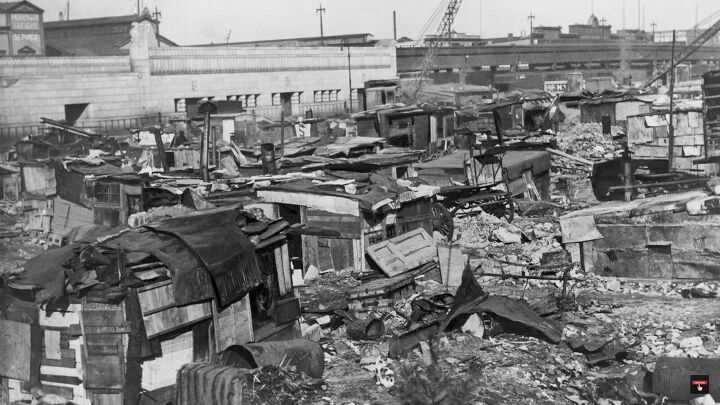








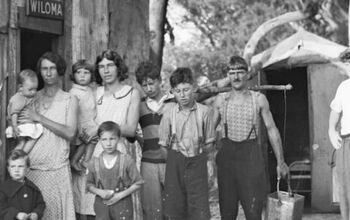


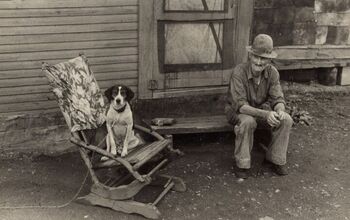
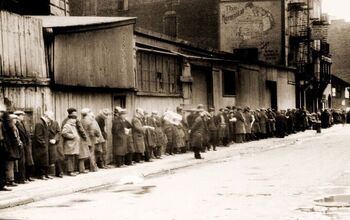
![101 Items to Get Rid of With No Regret [Free Declutter List]](https://cdn-fastly.thesimplifydaily.com/media/2022/08/30/8349390/101-items-to-get-rid-of-with-no-regret-free-declutter-list.jpg?size=350x220)


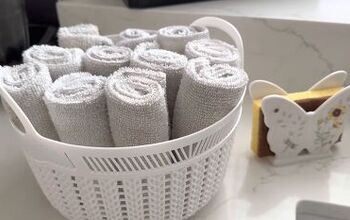




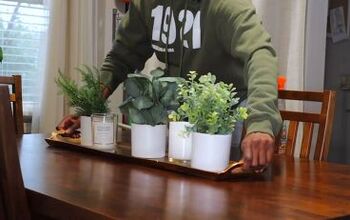

Comments
Join the conversation